Shiba Inus, dogs who have a reputation for being “cat-like” due to their independence and grooming habits, have rocketed to worldwide fame in the Internet age as the face of the “Doge” meme and related cryptocurrencies.
Shibas make good companions, but aren’t right for every home. Wondering if a Shiba Inu is a fit for you? Read on for important considerations about their personalities and health that can help you decide whether to bring a Shiba Inu into your family, or take better care of the one you already have.
Basic Shiba Inu Facts
The Shiba Inu is a spitz with thick fur and pointy ears. Adults of the breed grow to around 17 pounds for a female and 23 pounds for a male, and their average lifespan is 13 to 16 years. The Shiba Club of America lists their coats as coming in three colors: “red,” “sesame,” and “black and tan.” They shed year ‘round, and do so heavily during fall and spring. They require more exercise than average, and can be vigilant watch dogs. They’re very clever and are known for escaping from homes (and even harnesses), so keep a close eye on them.
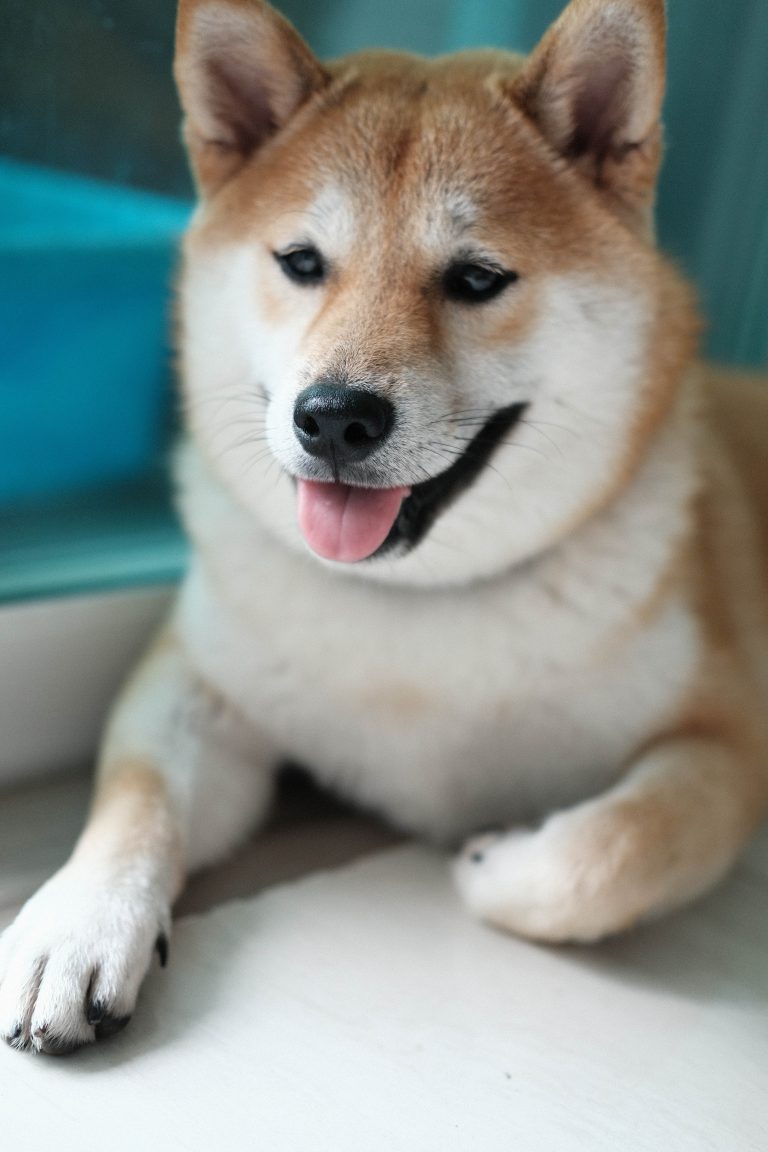
Photo by Minh Pham on Unsplash.
“Should I get a Shiba Inu?”
While Shiba Inus are cute and compact, and have seen their cultural cachet rise thanks to their role in Internet culture, they can be a demanding breed—and any prospective owner should prepare for the challenge of caring for one.
Zennia Barahona has had Shiba Inus for 20 years and is president of NYC Shiba Rescue. When looking for adopters, she says, her organization prefers “people who have ideally had a dog before—especially if they’ve had a Shiba or another similar breed like a Jindo or a husky.” “It doesn’t mean that we haven’t adopted out to a first-time dog owner,” she says, “but it’s a little bit trickier because they’re not often great for the first-time dog owner.”
A Shiba Inu is not the prototypical “family dog” one might imagine, constantly playful and craving human affection. While every individual is different, some Shibas might not always be in the mood for belly rubs. They’ll need ample exercise—in addition to walks and play outside, you may see yours performing a “Shiba 500,” which is a nickname Shiba Inu owners have for the breed’s habit of gleefully running laps around a home, jumping onto and off of the furniture. Training and socialization are important and can take a lot of work, as the typical Shiba is smart but not necessarily eager to please. And there will be shedding. Lots and lots of shedding.
Of course, there are reasons that people love Shiba Inus. They’re loyal, intelligent, energetic, and clean dogs who may rarely bark, though you will likely get to know the “Shiba scream”—the high-pitched sound a Shiba Inu may make when they want to stop something from happening—in time. Carolee, who owns 4-year-old Shiba Inu Megumi, captures many Shiba owners’ sentiments when she says: “I have had many different breeds—and Shibas, while challenging, are the best!”
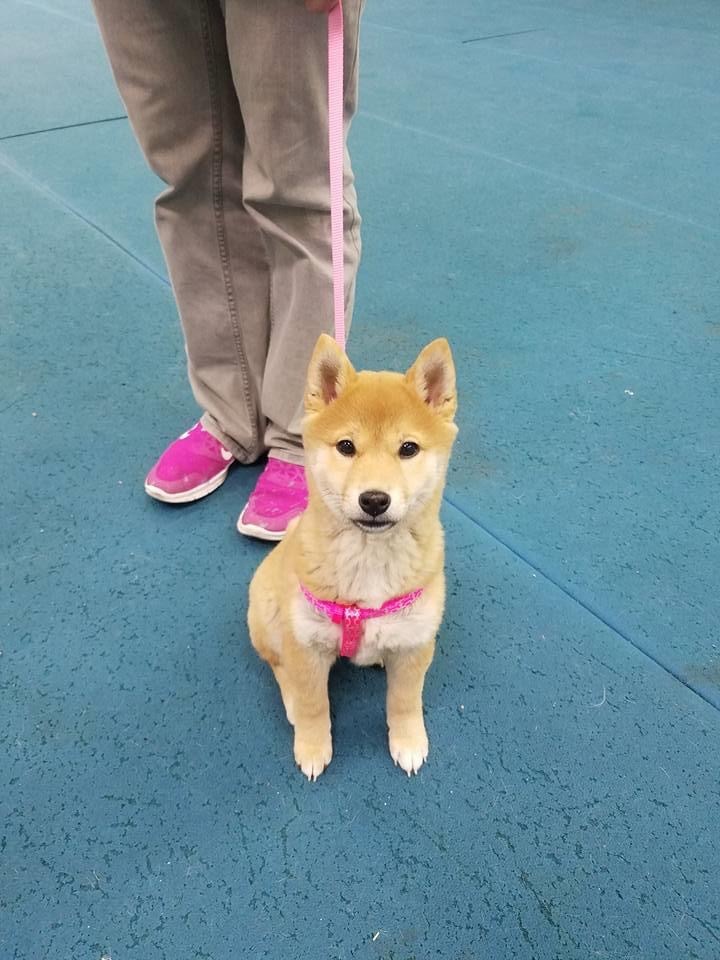
Megumi
Shiba Inu breed history
The American Kennel Club dates the appearance of Shiba Inus in Asia back to 300 BC, and they remain the most popular dog breed in Japan. Humans have long used them to hunt and flush game, but today they’re primarily pets. Though considered one of the oldest dog breeds, Shiba Inus have the hyper-modern distinction of being the face of a meme and multiple cryptocurrencies, and would seem to be the Internet’s favorite dog (or, as the extremely online would spell it, “doge.”). Whether spouting absurd, syntactically incorrect phrases rendered in comic sans, modeling menswear, or anchoring a mock newscast, the Shiba seems to be everywhere on the web.
Still, the ancient breed’s journey across millennia to the digital age was not all smooth sailing. The Shiba Inu nearly became extinct in the 1940s due to World War II bombing raids and distemper in its native Japan, before being revived by postwar breeding programs. Shibas first came to the United States in the 1950s, brought here by a military family, and were recognized by the AKC in 1992.
How are Shiba Inus like cats?
Shiba Inus are definitely dogs, but they’ve earned their reputation for being among the most feline of canines. For one thing, there’s their independent streak; while the stereotypical dog is always excited to cuddle with a human and eager to meet new friends, Shiba Inus tend to be more selective about when they want affection, and from whom. Of course, every dog is an individual, and Shibas are not the only dogs who don’t always conform to the public’s general expectations of the species. And Barahona says that there are exceptions among Shibas, including one of her own. “We joke that ‘You’re not even a Shiba,’” she says of the dog in question, “because she’s so cuddly, [and] she always wants to be in a room with you.” Another quality that makes Shiba Inus seem like cats is their determination to keep clean—they are fastidious, and will frequently groom and lick themselves to remove muck. And, finally, the Shiba’s drive to escape and explore on its own may strike some observers as catlike.
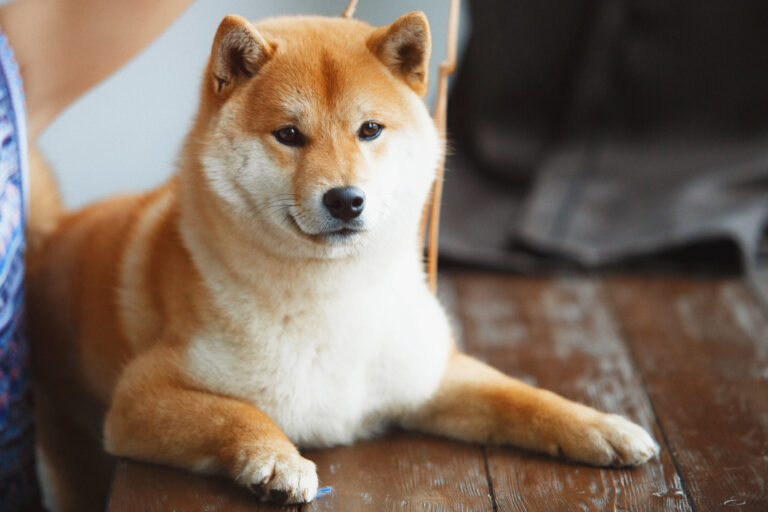
Shiba Inu personality
We’ve mentioned Shibas’ independence, fastidiousness, and aloofness above. They want things their way when it comes to affection, routine, and grooming. They’ll appreciate if you stick to a schedule; they may not always be in the mood to be petted, especially by someone new; and if they’re not used to grooming or bathing they may let out the infamous, high-pitched “Shiba scream.” It’s hard to describe its intensity if you haven’t heard it before. Barahona remembers the first time her parents heard a Shiba scream, from one of her dogs: “He got mud on his paws,” she says, “so I just picked him up and cleaned his paws with a little wipe. He did the Shiba scream, and I wasn’t fazed by it—but my parents had never heard it before, and they thought I was, like, ripping off his leg.”
Shiba Inu training
Per the AKC, the typical Shiba Inu is “practically born housebroken.” For whatever reason, it’s usually easy to get them to only go to the bathroom outside. However, there are still reasons that training a Shiba Inu can be a formidable task.
To avoid bigger problems down the road, Barahona recommends starting training as early as possible and making sure that all household members consistently follow the same rules with your Shiba Inu. “Because they’re so intelligent,” she says, Shiba Inus will “go to the weakest link. And they’ll say, ‘Okay, I know I can go to him or I know I can go to her and get away with stuff.’”
Resource guarding and food aggression are issues to look out for, as is the Shiba Inu’s tendency to be an escape artist. No matter how well you think you know your Shiba Inu, and no matter how well they’re trained, never let them off leash in a non-enclosed area—they love to hunt and may break away when they get an opportunity. Carolee never lets Megumi off leash, and watches the door carefully. Nevertheless, she says, “she did escape a few times.” Carolee’s experience is not unusual.
“I’ve seen and heard about Shibas who can open a crate, who can open a baby gate, who’ve learned how to open a door or a sliding glass door if it’s not locked,” says Barahona, who recommends that new Shiba Inu owners consider using two leashes—one on a harness and one on a collar—place a baby gate by the door (lest their pup make a break for it when they receive a package or a guest comes to visit), and make sure their crate is secure even against the Houdini-esque abilities of the breed.
“I had one Shiba where I had a one-lock crate,” she says, “and she flipped it up and opened it and went into my dining room. But I got a two-lock crate, and then she tried to do one and was frustrated and then she was like, ‘Ugh, forget it.’” In other words: the extra caution is called for and worth it when you’re dealing with these smart, adventurous dogs.
Denise Herman, founder and head trainer at Empire of the Dog in New York City, emphasizes that “all dogs are individuals, and we should just look at the dog in front of us” when it comes to training rather than making assumptions based on breed. Still, while “security is important with any dog,” she adds: “let’s say that you need to be a little more concerned about security with your Shiba Inu, because they are mischievous.” In addition to finding a system that works for you to ensure that your Shiba doesn’t escape their crate or harness, Herman recommends making the crate a more pleasant place to be. “You can tire a dog out in many different ways,” she says, “but tiring them out intellectually can happen in the crate”—through food puzzles, for example. Giving your dog positive experiences in the crate can help them feel more comfortable in there, “as opposed to it being the place where they lose everything exciting.”
And if you’re looking for a Shiba Inu who might not conform to the most common generalizations about the breed—perhaps you’re hoping for one who’s a bit more affectionate, for example—Herman suggests seeking out an adult dog with a known personality. “Keep looking at the rescues,” she says. “Wait for the anomaly, and adopt the anomaly. It’s there; it’s just less likely.”
Healthy lifestyle for Shiba Inus
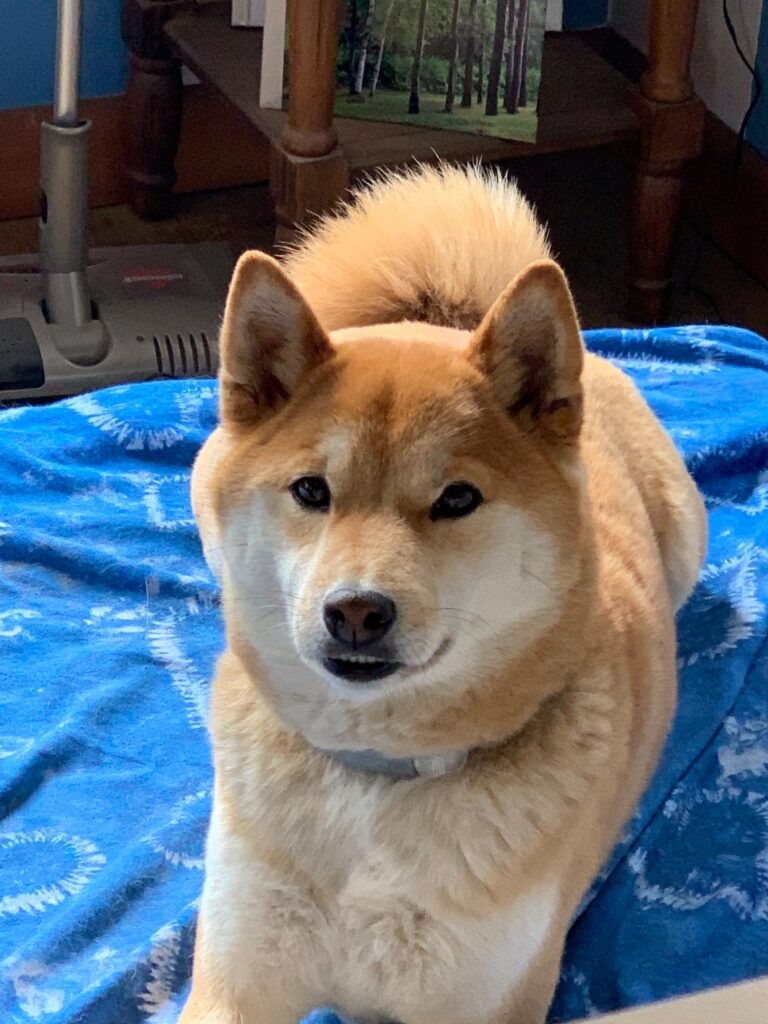
Megumi
Exercise
Shiba Inus should get a generous amount of daily exercise. They’ll be good walking partners—just make sure they’re secured to at least one leash, and never let them off lead in an unenclosed area. They may romp a lot around your home (see the “Shiba 500” reference above), and if you get a couple of them together they have a tendency to “play hard.” If you’re looking for extra activities to enrich a Shiba’s life, the Shiba Club of America lists several that may be of interest. In barn hunt, Shibas use their energy and instincts to track down rats in a barn (don’t worry—no rats are harmed). It’s a team activity in which dog-handler communication aids success. In coursing, a Shiba chases a mechanical lure. Agility is another fine choice—Megumi started that activity as a puppy, and Carolee proudly notes that “she earned both her novice titles last year.” Other options include scent work, tracking, and musical freestyle, to name just a few. Consult with your vet to confirm that any exercise program or activity is appropriate for your dog; with a Shiba Inu, you’ll want to pay particular attention to the risks of hip dysplasia and patellar luxation. But, overall, an active Shiba will be a much happier Shiba.
Grooming and bathing
As mentioned above, Shiba Inus shed moderately all the time, and very heavily twice a year when they “blow” their undercoats. So get your vacuum cleaners ready for furniture and carpets, and be prepared to comb your dog regularly. Shibas like to stay clean by licking their paws and legs, but many of them are resistant to nail trimming and bath time. If you can, get them started early and use high-value treats to acclimate them to these activities, lest they become ordeals soundtracked by the distinctive “Shiba scream.” If necessary, there’s no shame in enlisting professional assistance to make sure your beloved pet stays clean and well-groomed.
Common Shiba Inu health problems
Shiba Inus are a healthy breed that can lead long lives—in 2011, the world’s oldest dog as recorded by Guinness was a Shiba mix by the name of Pusuke, who lived to an astounding 26 years. Still, the breed can be prone to certain health issues, and informed owners can improve their Shibas’ lives by being on the lookout for them.
Hip dysplasia: This is a condition in which the ball and socket of the hip joint do not fit together properly, which could lead to arthritis or degenerative joint disease. Because hip dysplasia can cause your dog pain or cost them the use of the impacted joint, it’s important that your vet pays close attention to your Shiba Inu’s hips during checkups. If you notice symptoms like a newly limited range of motion, diminished willingness to move around, hopping, pain, or limping, have a vet check your dog out.
Eye disorders: Shiba Inus can develop cataracts, in which the lens of the eye becomes clouded, preventing light from entering. They may also be at risk of glaucoma, in which excess pressure damages the optic nerve. Glaucoma can arise on its own, or due to a variety of other ailments. These conditions can permanently blind your dog in the affected eye or eyes—but some cases, especially if caught early, can be treated with medication and/or surgery. If your Shiba’s eyes look cloudy, or if you notice eye pain, discharge, swelling, a cloudy or bluish appearance, or vision changes, contact your veterinarian.
Patellar luxation: This is a condition in which a dog’s kneecap slips out of place. Symptoms to watch for include your Shiba Inu picking up one leg and seeming to skip for a few steps, then kicking a leg out to pop the knee back into place. Severe patellar luxation can require surgery, but a vet may be able to treat a milder case with medication.
Allergies: Shibas may be more likely than some other breeds to experience skin irritation from allergies. An allergic dog’s symptoms may include licking their paws, scratching themselves, developing ear infections, or rubbing their face. Treatment options vary partly depending on the specific allergy: among dogs’ many potential allergies are foods, pollen, mold, and flea bites, to name just a few. Read more about decoding and managing allergies here.
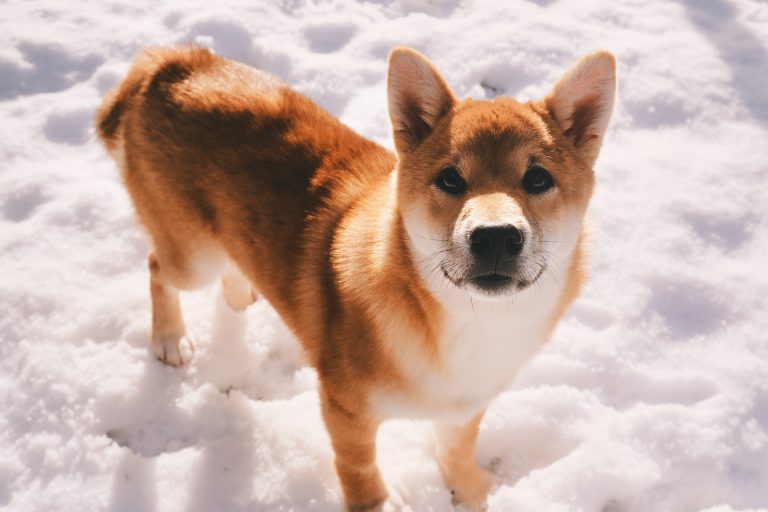
Photo by Melody Less on Unsplash
Food and nutrition for Shiba Inus
Like any other dog, Shiba Inus need healthy, complete and balanced food that provides enough energy for daily activities while helping maintain a healthy weight. A pre-portioned meal plan could help on all of these fronts. A fresh diet that provides balanced Omega-3 fatty acids could be an asset as you seek to ward off joint issues.
And, given that Shibas may face more allergies than other breeds, it’s a good idea to remain aware of exactly what’s in their food—something that’s hard to do with kibble, which often contains ingredients not listed on the label.
A healthy diet—alongside ample exercise, training, vet care, and lots of room to race around—is among the keys to giving your Shiba a happy, long, life.
Where to get a Shiba Inu
If you’ve decided to bring home a Shiba Inu, a rescue organization like NYC Shiba Rescue is a great place to start; there are many Shiba Inus and Shiba Inu mixes who need good homes.









